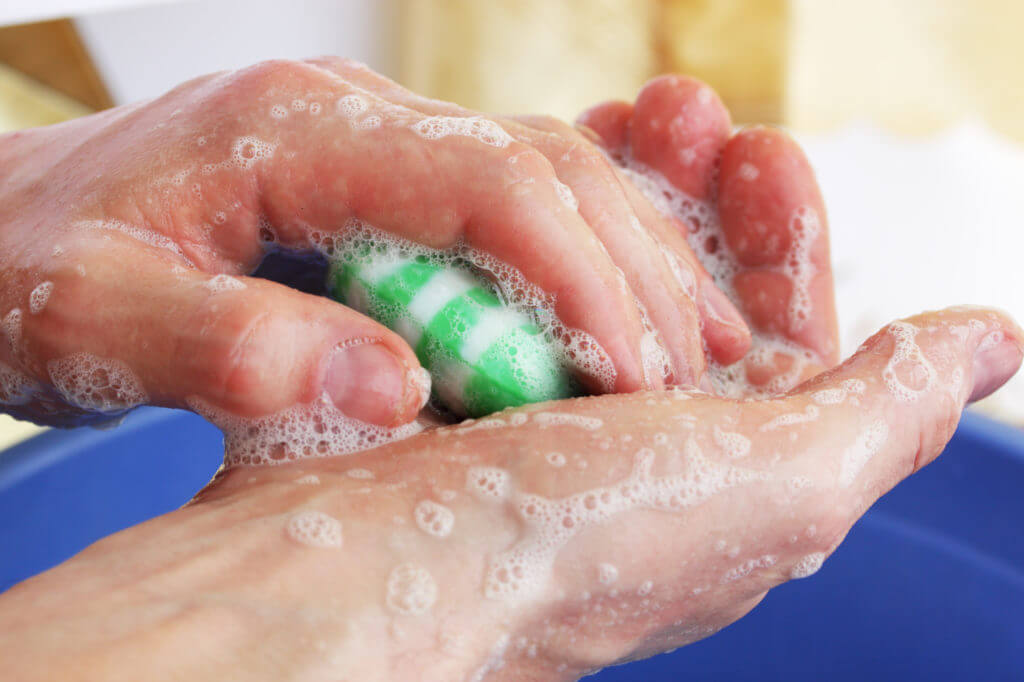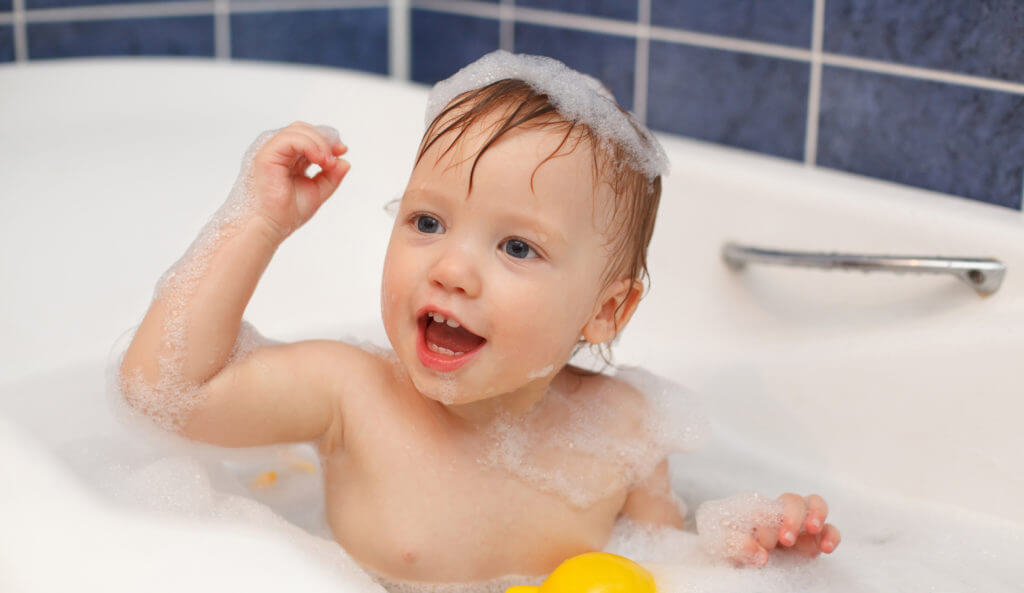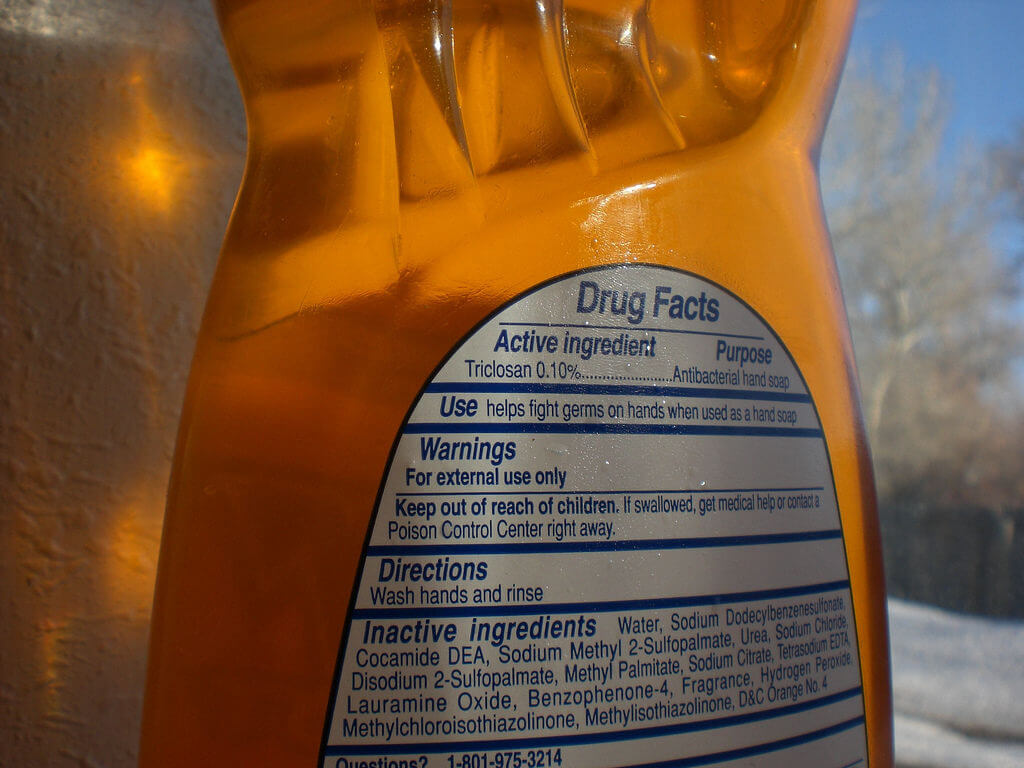Here is one of the easiest ways to help your microbiome and your gut.
Throw away everything in your home that contains Triclosan or Triclocarban. Don’t use antibacterial soaps when away from home, as they too may contain these chemicals. Simple isn’t it?
Oh, you want to know how and why? Good, you really need to know just how bad this stuff really is!
Triclosan is a chemical that was first used as a pesticide in 1969. It began being used as a hospital scrub in the early ’70s and has been used as an antibacterial agent in consume products since the late 1980s. Today it is commonly used in products such as antibacterial body soaps, dish soaps, toothpastes, deodorants, shampoos, mouth washes, body gels, antimicrobial toys, antimicrobial kitchenware (such as cutting boards), kitchen and body wipes, bedding, even antimicrobial socks and underwear (such as Biofresh®). Even products that contain some natural ingredients (such as tea tree oil) can have triclosan. If it says “antibacterial”, “antifungal”, or “antimicrobial” you should be suspect. Triclocarban is a related chemical that has similar antimicrobial activity, if found on a label it too should be avoided.

The problem with these antimicrobials is that they kill bacteria and yeast indiscriminately, both good and bad. It completely disrupts the microbiome of the entire gastrointestinal tract, the skin, and even other internal organs.
Research Studies
Studies also show that triclosan can be absorbed directly through the skin, it is not enough to simply avoid oral consumption or food contamination. Simply washing your hands or brushing your teeth with a product containing triclosan will cause significant absorption in to the blood and organs; according to a University of New York study in 2014 it is even passed from mother to child during breast feeding.
“Numerous studies have been conducted that examined the
presence… TCS (triclosan) in human blood at significant levels following the use of personal care products containing these compounds…and, in neonates, ingestion of breast milk… Estrogenic effects from exposure to these compounds have been documented, including decreases in gestational length at delivery, effects on birth weight, and disruptions in the reproductive endocrine system in relevant animal models, as well as early onset of puberty” — ScienceDirect (abstract).
In a new study out from the Oregon State University they’ve found that triclosan “can be easily absorbed through the skin” and can cause “rapid changes in both the diversity and composition of the microbiome”. Even baby products can contain triclosan so it is imperative to read the labels.

There is also a growing concern that the overuse of antibiotics and antimicrobials can lead to new “superbugs”. These microbes are both more virulent and harder to get rid of. We absolutely need our microbiome be healthy, diverse and strong.
“The gut-associated microbiome performs vital functions for human health, prevents colonization with pathogens, stimulates the development of the immune system, and produces micronutrients needed by the host. Dysfunction of this microbiome has been associated with human disease, including diabetes, heart disease, arthritis and malnutrition, the scientists pointed out in their study.” — Oregon State

What you can do about triclosan
The best way to avoid triclosan is to read the labels; however, some products, such as cosmetics, clothing and bedding, may not list ingredients. In that case avoid them if they say they are antimicrobial or antibacterial and don’t say how they achieve that goal. For instance, bedding and socks may use silver or copper threads, rather than chemicals, that would be OK. For a list of a few of the products that contain triclosan see BeyondPesticides.org
Some countries and states are taking actions against triclosan. In 2012 Canada declared triclosan harmful to the environment and possibly harmful to human health. This may lead to triclosan being banned in many products sold in Candada. In 2012 the state of Minnesota passed the “nation’s first statewide ban on the use of triclosan in consumer soaps”. This law is due to take effect in 2017.
It really isn’t too difficult to avoid triclosan, and for the sake of your gut it is surely worth it. Because this found in such common household products you may want to share this information with your friends and family. Hopefully someday we won’t have to worry about this threat any more, but right now we do.
All images posted by John Herron are either "Copyrighted John Herron", or are copyrighted by someone else and are used under license. So please don’t use them elsewhere, you’ll get in trouble.

 Phage Complete comes with a full 30 day money back guarantee, for U.S. purchases this includes the original shipping charges to you!
Phage Complete comes with a full 30 day money back guarantee, for U.S. purchases this includes the original shipping charges to you!